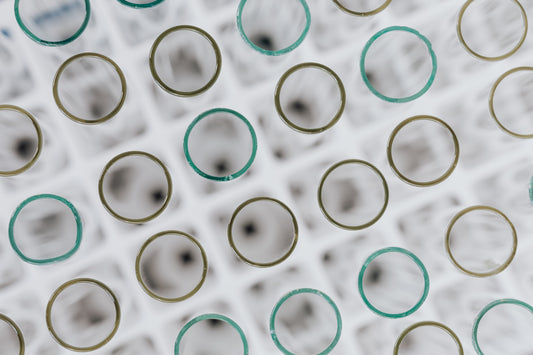When choosing to use a sperm donor, a major decision you’ll need to make involves which kind of donor arrangement you prefer: ID Release (“Open donors”) or Non-ID Release (“anonymous donors”). One of the major advantages of Donor-Network is the wealth of information we provide to help you make an informed donor decision irrespective of the donor’s anonymity. Regardless of your decision, the same care and requirements are placed on every donor, whether they choose to remain anonymous or not. We recommend considering the pros and cons of each option and reflecting on your personal beliefs before making your decision.
Over the years, there has been an ongoing debate regarding attitudes toward sperm donor identity.
Some argue in favour of maintaining donor anonymity, citing privacy concerns and the rights of donors. Others advocate for more transparency, referencing the rights of donor-conceived individuals to access information about their genetic origins.
So, What's the Difference Between Non-ID Release and ID Release Donors?
When it comes to sperm donation, there are two primary donor options: ID Release and Non-ID Release. These terms refer to the level of potential contact between the donor and any resulting offspring. Let’s explore each option in more detail:
ID Release Donors
ID Release or Identity Release donors agree to have their identities disclosed to any offspring resulting from their donation. In this arrangement, when a child reaches a certain age (usually 18 or 21), they can access identifying information about their donor at the sperm bank. This information may include their name, address, or other personal details, potentially enabling the child to establish contact with their biological counterpart should they choose to do so.
Advantages of Known Donor (ID Release)
- Advances in consumer genetic testing will likely make anonymity obsolete in the future. ID Release donors have made this decision.
- The donor-conceived child can learn their donor's identity.
- Reduces concerns regarding ethical dilemmas.
Disadvantages of Known Donor (ID Release)
- Parents may prefer their child cannot seek out the identity of their donor.
- At the time of donation, most donors are young men without families and may feel differently regarding ID Release when they have children of their own 20 years later.
- ID Release donors are more expensive.
Non-ID Release Donors
Non-ID Release donors, also known as anonymous donors, choose to remain anonymous and do not consent to the release of identifying information to offspring conceived with their donated sperm. In this case, the donor's identity is typically kept confidential. The donor and any resulting children cannot establish contact or access one another’s personal information.
Advantages of Anonymous Donor
- Clearer emotional boundaries.
- Decisions regarding donor contact are established once and for all.
- Less costly.
- Advances in consumer genetic testing will likely render anonymity obsolete in the future.
- You may not contact the donor.
- There is an ongoing ethical debate about the right of a child to know their genetic origins.
- Emotional struggles for the donor child. Similar to what’s been reported concerning adopted children, some donor children report a feeling of loss or a desire to know their genetic origins.
It's essential to note that different countries have different laws and regulations regarding donor anonymity. In some countries, like the UK and the Netherlands, only ID Release donation is allowed. In others, like the U.S., both ID Release and Non-ID Release donations are permitted.
These options present different implications for donor-conceived children, parents, and the donors themselves in terms of privacy, personal identity, emotional well-being, and health-related matters. It's a complex ethical subject, and those debating using or becoming donors should consider all aspects of the decision carefully.
If you are considering using a sperm donor, we’re here to answer any questions you may have. You may schedule a free online consultation here to ensure you are well-informed regarding the legal and ethical aspects of the process.



